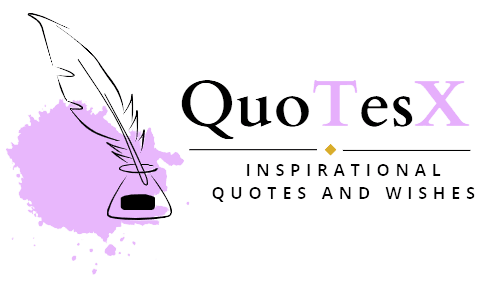The Enduring Power of Pragmatic Idealism: Unpacking Theodore Roosevelt’s “Do what you can, with what you have, where you are.”
Theodore Roosevelt’s concise yet potent maxim, “Do what you can, with what you have, where you are,” resonates across time and circumstance. It’s a call to action, a philosophy of pragmatic idealism, and a timeless reminder that impact isn’t solely the domain of the privileged or the perfectly positioned. This seemingly simple statement encapsulates a complex interplay of agency, resourcefulness, and acceptance, offering a framework for navigating personal challenges, societal ills, and even global crises. This article will delve into the multifaceted nature of Roosevelt’s quote, exploring its historical context, philosophical implications, and practical applications in various spheres of life, from individual self-improvement to large-scale social change.
The Man and the Message: Contextualizing Roosevelt’s Philosophy
Understanding the quote requires understanding the man. Theodore Roosevelt, the 26th President of the United States, was a figure of immense energy and conviction. A sickly child transformed through sheer willpower into a robust adventurer, soldier, and statesman, Roosevelt embodied the very essence of his maxim. His life was a testament to overcoming limitations, leveraging available resources, and making a difference wherever he found himself. From the badlands of North Dakota to the halls of the White House, Roosevelt consistently demonstrated a commitment to action, driven by a deep sense of social responsibility.
The quote itself, while often attributed directly to Roosevelt, lacks definitive documented origins. Some scholars suggest it might be a paraphrased distillation of his broader philosophy, reflecting sentiments expressed in his speeches and writings. Regardless of its precise provenance, the quote encapsulates Roosevelt’s core beliefs: the importance of individual initiative, the power of resourceful adaptation, and the rejection of passive resignation in the face of adversity. This philosophy resonated with a nation grappling with rapid industrialization, social inequalities, and a shifting global landscape. Roosevelt’s call to action was not a naive plea for blind optimism, but a pragmatic recognition that progress requires engagement, even in imperfect circumstances.
Philosophical Underpinnings: Agency, Resourcefulness, and Acceptance
Roosevelt’s maxim rests on three interconnected pillars: agency, resourcefulness, and acceptance. Agency refers to the capacity to act independently and make choices that shape one’s life and surroundings. The quote empowers individuals to recognize their own potential for impact, regardless of perceived limitations. It’s a rejection of victimhood and an embrace of personal responsibility.
Resourcefulness, the second pillar, highlights the ability to creatively utilize available resources, however limited they may seem. It encourages a mindset of innovation and adaptability, recognizing that constraints can often be catalysts for ingenuity. Resourcefulness is not simply about making do with less; it’s about maximizing the potential of what’s at hand.
Finally, acceptance forms the bedrock of the quote’s pragmatism. It acknowledges the reality of limitations and the impossibility of perfect circumstances. Acceptance is not about resignation; it’s about recognizing the starting point and working from there. It’s about focusing on what can be controlled rather than lamenting what cannot.
These three elements – agency, resourcefulness, and acceptance – create a powerful synergy. Acceptance provides the grounding, resourcefulness offers the tools, and agency fuels the action. Together, they form a framework for effective engagement with the world, empowering individuals to make a difference within their own spheres of influence.
Practical Applications: From Personal Growth to Global Challenges
The enduring power of Roosevelt’s maxim lies in its applicability across a vast spectrum of human endeavors.
Personal Development: On a personal level, the quote serves as a powerful antidote to procrastination and self-doubt. It encourages individuals to overcome inertia by focusing on actionable steps, however small. Whether it’s pursuing a new skill, improving physical health, or cultivating a healthier mindset, the principle of “doing what you can, with what you have, where you are” provides a practical roadmap for self-improvement.
Community Engagement: At the community level, the quote inspires collective action. It empowers individuals to identify local needs and contribute their skills and resources to address them. From volunteering at a local shelter to organizing a neighborhood cleanup, the principle encourages active participation in shaping a better community.
Entrepreneurship and Innovation: In the realm of business and innovation, Roosevelt’s maxim resonates deeply. Entrepreneurs often face limited resources and uncertain circumstances. The ability to adapt, improvise, and make the most of available resources is crucial for success. The quote encourages a “bootstrap mentality” – a willingness to roll up one’s sleeves and get things done, even in the face of challenges.
Social Justice and Advocacy: The quote also serves as a powerful call to action for social justice advocates. It reminds us that even seemingly small acts of resistance and advocacy can contribute to larger movements for change. Whether it’s speaking out against injustice, supporting marginalized communities, or advocating for policy reforms, the principle encourages individuals to use their voices and resources to create a more just and equitable society.
Environmental Stewardship: In the face of pressing environmental challenges, Roosevelt’s maxim takes on renewed urgency. It reminds us that individual actions, however small, can collectively contribute to a more sustainable future. From reducing our carbon footprint to advocating for conservation policies, the principle empowers individuals to take ownership of their environmental impact.
Global Crises: Even in the face of global crises, from pandemics to economic downturns, the quote offers a framework for effective response. It encourages individuals and communities to adapt to changing circumstances, leverage available resources, and work together to overcome challenges.
Criticisms and Nuances:
While Roosevelt’s maxim offers a powerful framework for action, it is not without its limitations and potential for misinterpretation. Some critics argue that the quote can be used to justify complacency in the face of systemic inequalities. By emphasizing individual action, it can inadvertently deflect attention from the need for systemic change. Furthermore, the quote can be misinterpreted as a call for relentless self-reliance, neglecting the importance of community support and social safety nets.
It’s crucial to acknowledge that “doing what you can” does not absolve individuals or institutions from their responsibility to address systemic issues. Individual action must be complemented by collective efforts to create a more just and equitable society. The quote should be understood as a call to empower individuals within their current circumstances, not as an excuse to ignore the larger context of social and political structures.
Conclusion: A Timeless Call to Action
Theodore Roosevelt’s “Do what you can, with what you have, where you are” remains a powerful and relevant maxim in the 21st century. It’s a timeless reminder that impact is not solely the domain of the privileged or the perfectly positioned. It’s a call to embrace agency, cultivate resourcefulness, and accept the reality of limitations while striving for positive change. By integrating these principles into our personal lives, community engagements, and global endeavors, we can unlock our collective potential to create a more just, sustainable, and fulfilling future. The quote’s enduring power lies not in its simplicity, but in its profound capacity to inspire action and empower individuals to make a difference, wherever they find themselves, and with whatever resources they possess. It’s a testament to the enduring human spirit and its capacity to overcome adversity and shape a better world, one step at a time.





